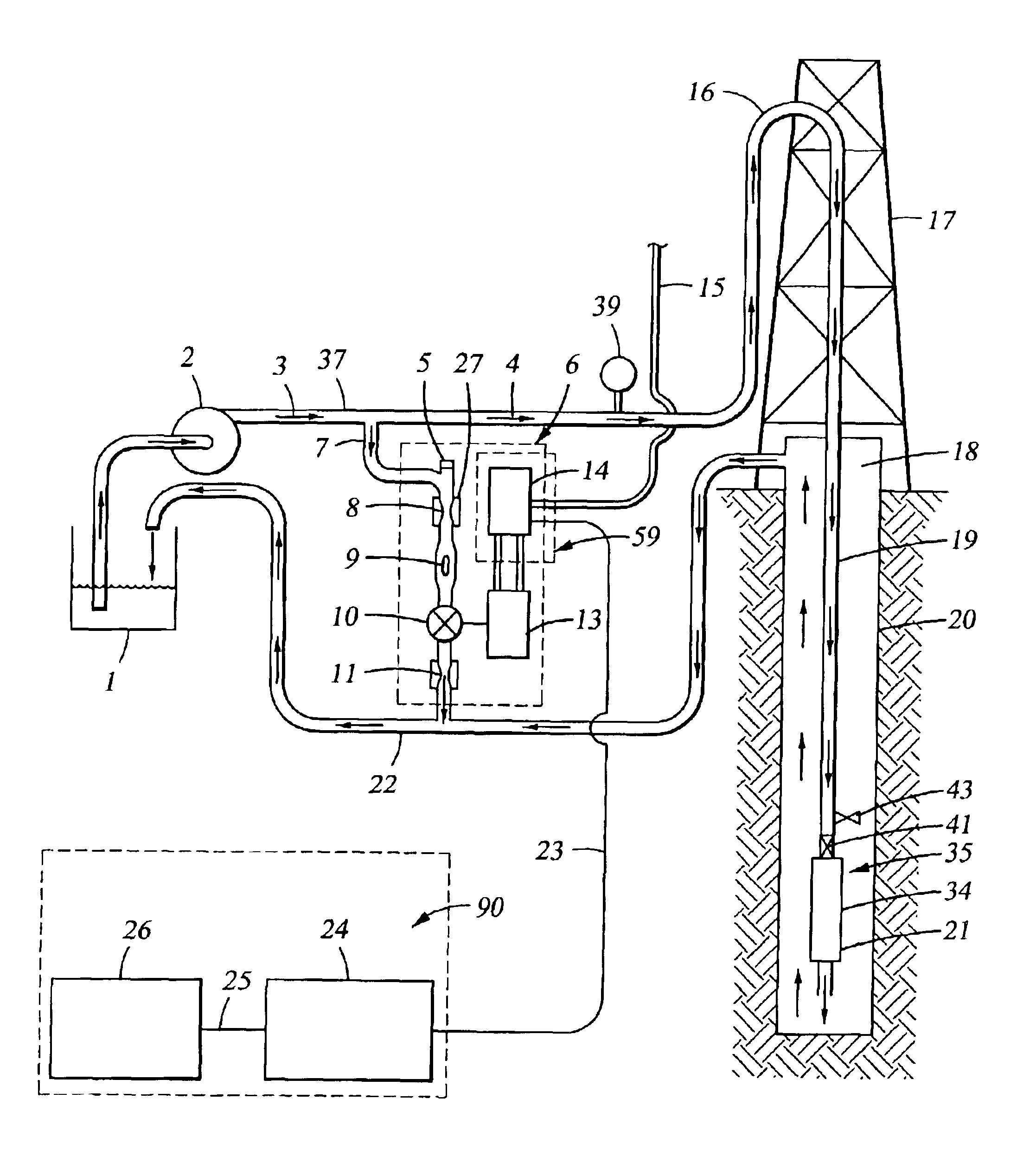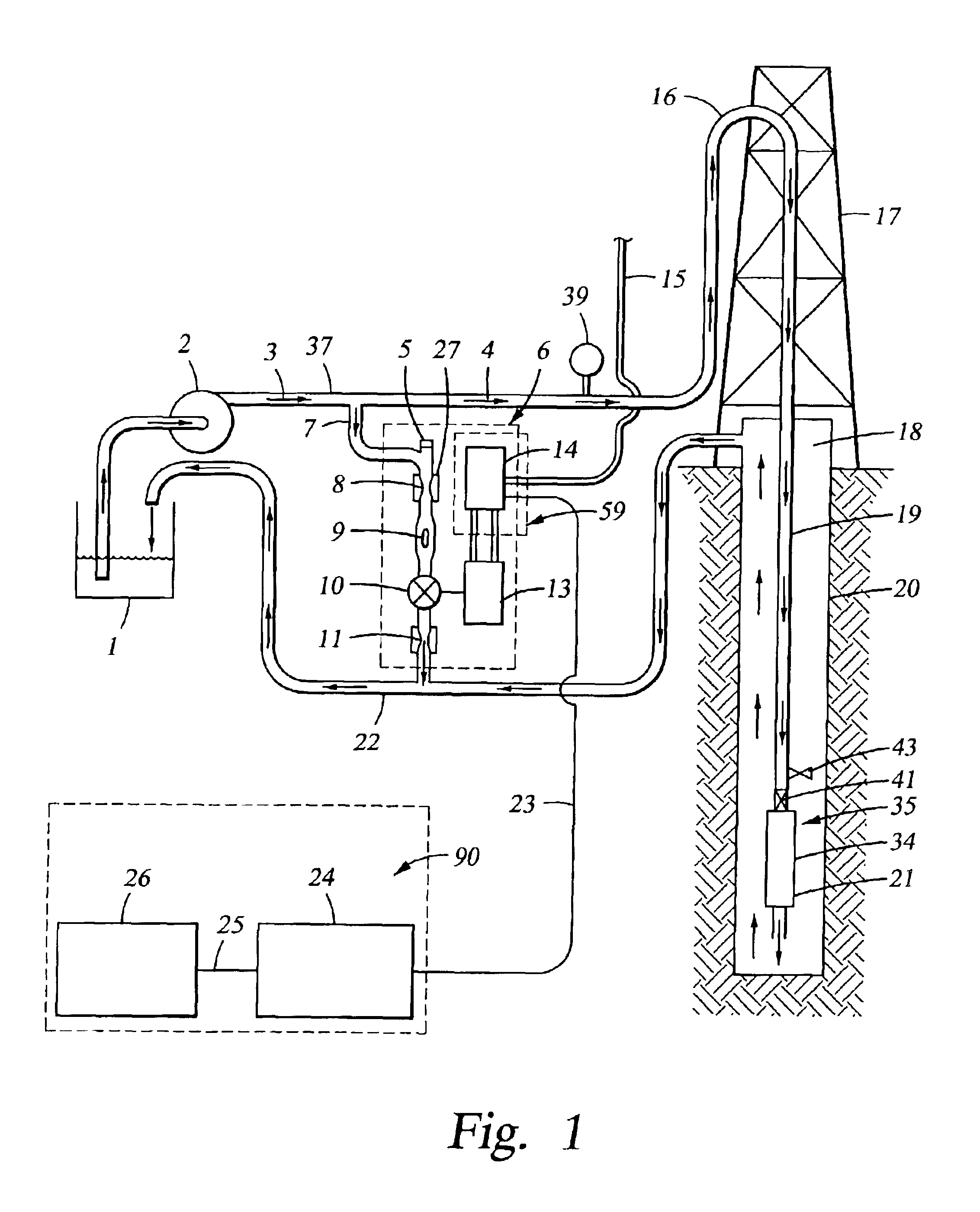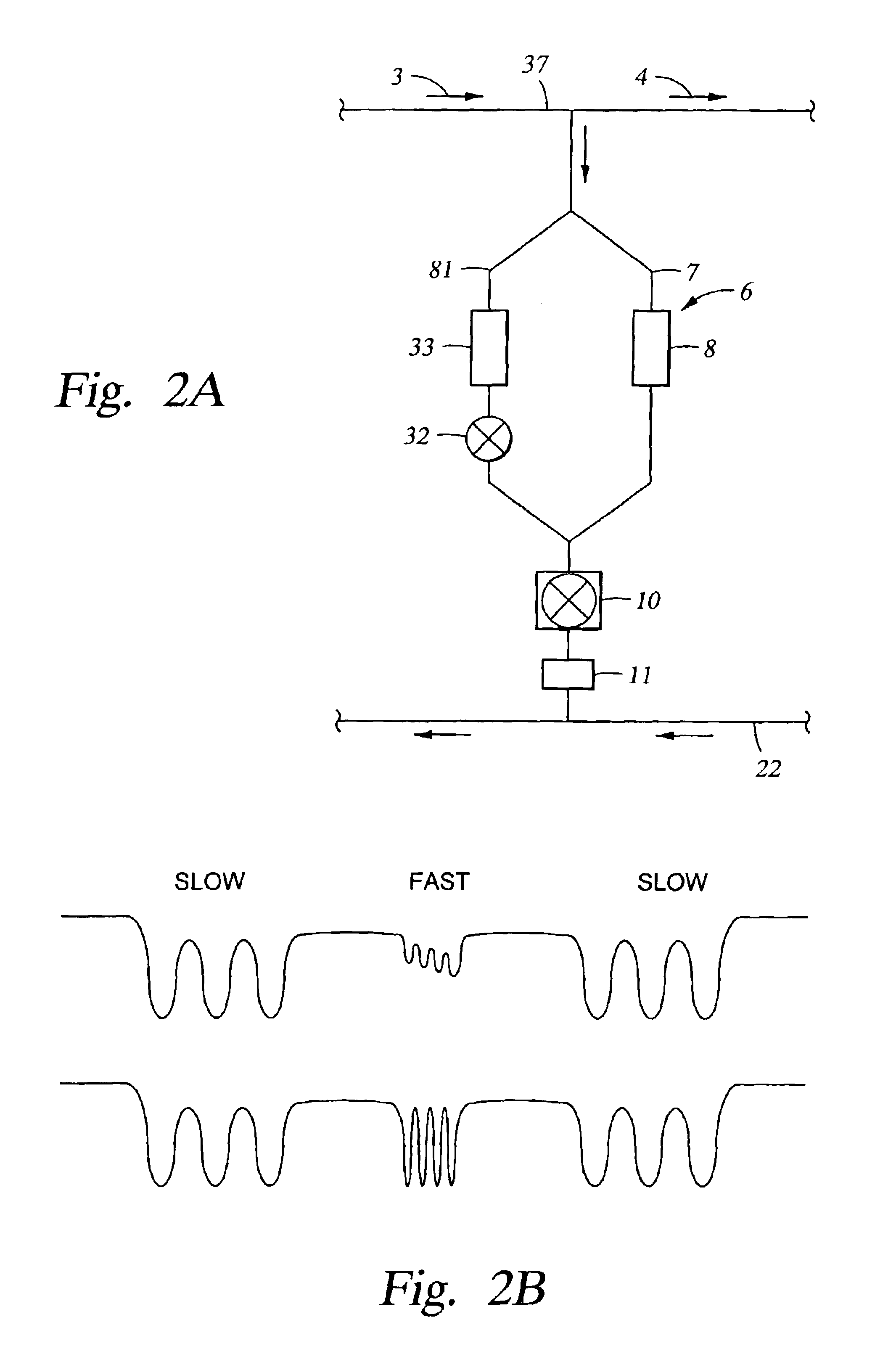Downlink telemetry system
a telemetry system and downlink technology, applied in the direction of survey, directional drilling, borehole/well accessories, etc., can solve the problems of inherently slow methods, unfavorable downlink communication, and the need to temporarily interrupt drilling, so as to reduce the time required for downlink communication and ensure the accuracy of downlink communication
- Summary
- Abstract
- Description
- Claims
- Application Information
AI Technical Summary
Benefits of technology
Problems solved by technology
Method used
Image
Examples
Embodiment Construction
[0043]Drilling, for the purpose of extracting hydrocarbons from the earth, requires a downhole drilling assembly, which may comprise, for example, directional drilling and formation evaluation tools. To operate these drilling tools, a communication link is required between the control and data collection equipment on the surface and the downhole assembly as it drills a well below the surface of the earth.
[0044]A common way to achieve this communication link is through a method called mud pulse telemetry. Mud pulse telemetry is used for sending signals from the surface to the downhole tools (downlink) or for sending signals from the downhole assembly to the surface (uplink). Generally downlink communication sends instructions in the form of commands to the downhole tools, and uplink communication confirms the instructions received by the downhole assembly and / or provides data to the surface.
[0045]Referring initially to FIG. 1, there is depicted a typical drilling operation where mud ...
PUM
 Login to View More
Login to View More Abstract
Description
Claims
Application Information
 Login to View More
Login to View More - R&D
- Intellectual Property
- Life Sciences
- Materials
- Tech Scout
- Unparalleled Data Quality
- Higher Quality Content
- 60% Fewer Hallucinations
Browse by: Latest US Patents, China's latest patents, Technical Efficacy Thesaurus, Application Domain, Technology Topic, Popular Technical Reports.
© 2025 PatSnap. All rights reserved.Legal|Privacy policy|Modern Slavery Act Transparency Statement|Sitemap|About US| Contact US: help@patsnap.com



